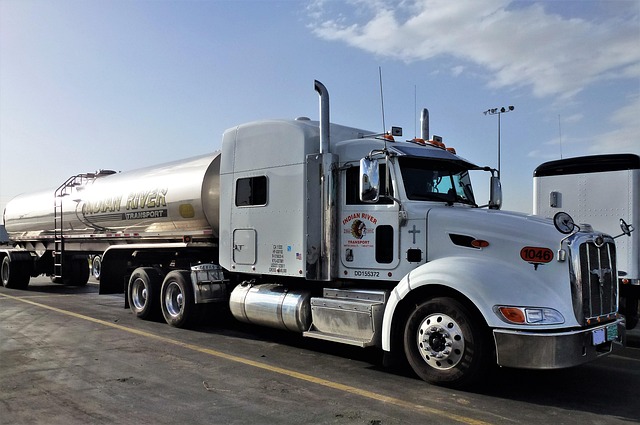In the dynamic trucking industry, traditional insurance often fails to meet unique challenges like varying cargo types and unpredictable work schedules. Therefore, there's a growing need for flexible trucking insurance plans that offer customizable, adaptable coverage. These plans balance affordability with comprehensive protection, leveraging data analytics, risk modeling, and technology to tailor policies based on specific needs like vehicle types, usage, and risk profiles. By embracing flexibility, insurers provide valuable protection against fluctuating costs, regulatory changes, and market dynamics, ensuring truckers are secure without overspending.
In today’s dynamic trucking industry, businesses face a delicate balance between managing operational costs and securing comprehensive coverage. This article explores the challenge of providing flexible trucking insurance plans that cater to diverse needs without compromising affordability. We delve into strategies for creating bespoke insurance features, highlighting their benefits for adaptive coverage and long-term success in an ever-changing market. By understanding this equilibrium, trucking businesses can navigate risks effectively while staying competitive.
Understanding the Need for Flexible Trucking Insurance Plans

In today’s dynamic trucking industry, understanding and catering to the unique needs of truckers is paramount. One aspect that stands out is the demand for flexible trucking insurance plans. Traditional insurance options often fail to address the specific challenges faced by truck drivers, such as varying cargo types, diverse driving conditions, and irregular work schedules. As a result, there’s a growing recognition of the necessity for customised coverage that aligns with the fluid nature of their professions.
Flexible trucking insurance plans respond to these needs by offering adjustable policies that accommodate the varied risks involved in trucking. These plans can provide comprehensive protection while keeping costs manageable, ensuring affordability without compromising on essential coverage. By embracing flexibility, insurers can meet the diverse requirements of individual truckers, fostering a sense of security and trust in an industry where unpredictability is the norm.
Balancing Affordability and Customization: A Challenge in the Industry

In today’s competitive market, balancing affordability and customization in insurance is a constant challenge for both providers and consumers, particularly within the niche of flexible trucking insurance plans. While clients seek tailored coverage that fits their unique operational needs, insurers are tasked with offering these specialized solutions without compromising financial viability. This delicate equilibrium is further complicated by the fluctuating economic landscape, where changing fuel costs, regulatory shifts, and market dynamics impact both premium pricing and customer expectations.
Trucking operations, with their diverse fleet sizes, cargo types, and driving conditions, demand insurance plans that are as adaptable as they are comprehensive. However, creating flexible trucking insurance plans that cater to these nuances while maintaining affordability requires a meticulous approach. Insurers must analyze data extensively, develop sophisticated risk models, and leverage technology to offer personalized policies without burdening policyholders with excessive costs. This balancing act not only ensures financial accessibility but also fosters trust between insurers and their customers by demonstrating a commitment to providing both quality service and value.
Strategies to Create Viable, Bespoke Insurance Features

Creating viable, bespoke insurance features for a diverse range of needs starts with understanding the unique challenges and requirements of different industries. In the case of flexible trucking insurance plans, this involves tailoring coverage options to accommodate varying vehicle types, usage patterns, and risk profiles. Insurers can achieve this by offering customizable policies that allow businesses to select specific coverages, such as liability, cargo protection, and driver safety incentives, based on their operational needs.
Leveraging technology plays a pivotal role in developing these plans. Digital platforms enable clients to easily adjust policy parameters, receive real-time quotes, and access comprehensive claims management systems. Moreover, data analytics facilitates the identification of patterns and trends, allowing insurers to refine risk assessments and propose tailored solutions. This customer-centric approach ensures that bespoke insurance features not only meet but exceed expectations for affordability and comprehensiveness.
The Benefits of Adaptive Coverage for Trucking Businesses

In the competitive trucking industry, where operational costs are high and fluctuations in fuel prices and labor markets are common, having a flexible trucking insurance plan is invaluable. Adaptive coverage allows businesses to customize their insurance to suit specific needs, ensuring they’re protected without overspending on irrelevant features. This flexibility enables truckers to mitigate risks associated with unique operations, from cargo security to liability for specialized vehicles.
By adopting adaptive coverage, trucking companies can avoid the one-size-fits-all approach often associated with traditional insurance policies. They can include or exclude specific peril zones, tailor liability limits according to their fleet’s age and value, and adjust coverage for specialized cargoes like hazardous materials. This level of customization not only enhances protection but also promotes financial prudence, ensuring that each policy dollar is allocated where it matters most.
In conclusion, balancing affordability with bespoke features is a key challenge in the trucking industry. By understanding the unique needs of trucking businesses and employing strategies that offer adaptive coverage, insurers can create flexible trucking insurance plans that are both cost-effective and tailored to individual operations. This approach not only benefits businesses but also contributes to a safer and more resilient trucking landscape.
